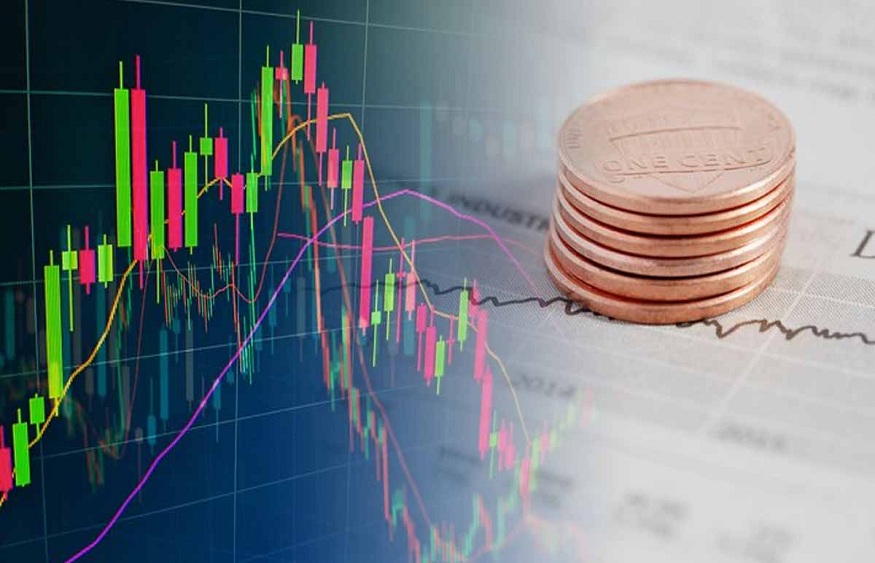
Navigating the Commodity Markets: A Trader’s Guide to Timely Decisions
Commodity markets play a vital role in the global economy, facilitating the trade of raw materials and primary agricultural products. In this guide, we will explore the intricacies of navigating these markets and making timely decisions as a trader. Understanding the definition of commodities and their significance in the global landscape is crucial. Additionally, we will provide an overview of major commodity categories, including metals, energy, agriculture, and livestock. By comprehending these fundamental aspects, traders can effectively capitalise on opportunities and manage risks in this dynamic market. Successful navigation of the commodity markets requires staying informed, employing sound strategies, and adapting to ever-changing conditions. Through this guide, aspiring commodity traders can gain valuable insights and enhance their ability to make informed and strategic decisions in this essential sector of the global economy.
Factors Influencing Commodity Prices:
Commodity prices are influenced by a myriad of factors. Supply and demand dynamics have a direct impact, as do geopolitical events and weather conditions. Additionally, economic indicators and currency fluctuations can cause fluctuations in commodity prices. Staying informed about these aspects is crucial for making informed trading decisions.
Types of Commodity Trading:
1. Futures Contracts:
Futures contracts are agreements to buy or sell commodities at a predetermined price and date in the future. Understanding how futures trading works and recognizing the pros and cons of trading futures contracts are essential aspects for commodity traders.
2. Options Contracts:
Options contracts provide traders the right but not the obligation to buy or sell commodities at a specified price before a certain date. Knowing the difference between call and put options and learning how to use options for hedging purposes can be advantageous in managing risk.
3. Exchange-Traded Funds (ETFs):
ETFs are investment funds that hold portfolios of commodities. We will explore the role of ETFs in commodity trading, the advantages they offer, and the associated risks.
4. Physical Trading:
Directly buying and selling physical commodities is another approach to commodity trading. We’ll delve into the challenges and benefits of engaging in physical commodity trading.
Indian Commodity Market:
The Indian commodity market holds a significant position in the global landscape, making it a crucial player in the trading of raw materials and agricultural products. For traders seeking to diversify their portfolios, gaining a comprehensive understanding of the market’s distinctive dynamics and potential opportunities is invaluable. Exploring the intricacies of the Indian commodity market can offer valuable insights, enabling traders to make informed decisions and capitalise on its diverse offerings. As a major player in the global economy, India’s commodity market is influenced by various factors, such as supply and demand dynamics, geopolitical events, and currency fluctuations. Recognizing and adapting to these unique aspects can open doors for traders to explore new avenues and enhance their overall trading strategies. With its vast potential and dynamic nature, the Indian commodity market presents a compelling prospect for traders seeking growth and expansion.
Risk Management in Commodity Trading:
Due to the inherent volatility in commodity markets, risk management is crucial for traders. Understanding commodity market volatility and implementing stop-loss orders effectively are key components of managing risk. Moreover, traders need to consider position sizing, portfolio diversification, and tailor risk management strategies based on different commodity types.
Successfully navigating the commodity markets requires a comprehensive understanding of various trading instruments and market dynamics. We have explored the different types of commodity trading, including futures contracts, options contracts, ETFs, and physical trading. Moreover, risk management strategies are critical to safeguarding capital in this volatile market.Emphasizing the importance of continuous learning and adaptation, commodity traders must stay informed about the latest market developments and trends. Utilising commodities trading apps and other advanced tools can streamline the decision-making process and enhance trading performance. Aspiring commodity traders should recap the key points discussed in this guide and remain open to continuous learning. By adhering to a well-defined trading plan and managing risks effectively, traders can increase their chances of success in the challenging yet rewarding world of commodity trading. Always keep in mind that the commodity markets offer vast opportunities, but success lies in approaching them with a disciplined and informed approach.


